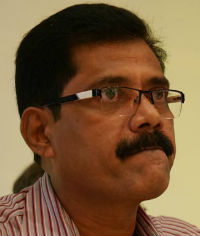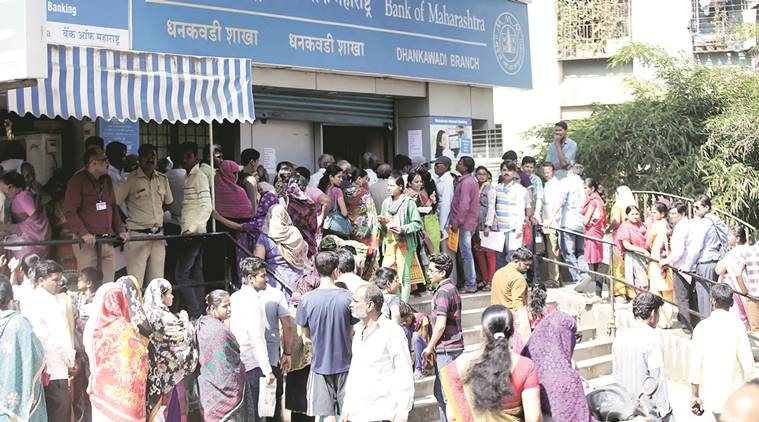Leaders of National Garment Workers Federation have vowed saying, “We will not let occur anymore tragic accident like Rana Plaza in Bangladesh. We will follow ‘Zero Tolerance’ policy regarding Garment workers safety. There will be no compromise in this matter.”National Garment Workers Federation (NGWF) leaders said this at ‘A lighting of 50 beacons of life by 50 orphans’ program organized to mark the 4th anniversary of Rana Plaza tragedy in front of the National Press Club in Dhaka city.
The 50 orphans have lighted equal number of lamps; they lost their parents in Rana Plaza accident that took place on April 24, 2013. They lightened the lamps at 9:15am on the occasion. The 8-story Rana Plaza located at Savar, about 30 kilometers away from the capital Dhaka, at about 9:00am on the fateful day when more than 5000 workers were working in 5 Garment factories inside the building. About 1138 workers, mostly women, lost their lives in the accident, which injured over 2500 workers. This tragedy is treated globally as the biggest industrial accident in the world in 100 years.
President of NGWF Amirul Haque Amin presided over the program. At the beginning of the program, the participants paid rich tribute & respect to the martyrs & victim and mourn their tragedy. They prayed for the departed souls and injured workers of Rana Plaza. President of the ceremony paid gratitude to the Garment workers of Bangladesh, Garment Trade Unions, International Trade Unions and Workers’ rights organizations for extending support for realizing compensation for the dead & injured victims of the tragedy and their family.
The program was addressed by, among others, NGWF General Secretary Mrs Arifa Akhtar & Central committee leaders Md. Faruq Khan, Mrs Aleya Begum, Kabir Hossain, Rafiqul Islam Rafique, Foridul Islam, Humayun Kabir, Mrs Sweety Sultana, H Robiul Chowdhury, Miss Esrat Jahan Ela, Bacchu Mia, Mrs Parvin Akhter, Md. Kasem.
While delivering presidential speech NGWF President Amirul Haque Amin appealed to the Government, Trade union bodies, BGMEA-BKMEA, Brands (ACCORD & Alliance) to undertake joint initiatives to prevent a repetition of tragedies like Rana Plaza and Tazreen Tragedies and to compensate the victim workers as per ‘Loss of earnings’(& 500.000Taka for ‘Pain & sufferings as per ILO Convention 121), as well as providing and short and long term medical support.
Amin also urged all concerned to provide long-term advanced and free Medicare support to the injured workers of both Rana Plaza and Tazreen.
The 50 orphans have lighted equal number of lamps; they lost their parents in Rana Plaza accident that took place on April 24, 2013. They lightened the lamps at 9:15am on the occasion. The 8-story Rana Plaza located at Savar, about 30 kilometers away from the capital Dhaka, at about 9:00am on the fateful day when more than 5000 workers were working in 5 Garment factories inside the building. About 1138 workers, mostly women, lost their lives in the accident, which injured over 2500 workers. This tragedy is treated globally as the biggest industrial accident in the world in 100 years.
President of NGWF Amirul Haque Amin presided over the program. At the beginning of the program, the participants paid rich tribute & respect to the martyrs & victim and mourn their tragedy. They prayed for the departed souls and injured workers of Rana Plaza. President of the ceremony paid gratitude to the Garment workers of Bangladesh, Garment Trade Unions, International Trade Unions and Workers’ rights organizations for extending support for realizing compensation for the dead & injured victims of the tragedy and their family.
The program was addressed by, among others, NGWF General Secretary Mrs Arifa Akhtar & Central committee leaders Md. Faruq Khan, Mrs Aleya Begum, Kabir Hossain, Rafiqul Islam Rafique, Foridul Islam, Humayun Kabir, Mrs Sweety Sultana, H Robiul Chowdhury, Miss Esrat Jahan Ela, Bacchu Mia, Mrs Parvin Akhter, Md. Kasem.
While delivering presidential speech NGWF President Amirul Haque Amin appealed to the Government, Trade union bodies, BGMEA-BKMEA, Brands (ACCORD & Alliance) to undertake joint initiatives to prevent a repetition of tragedies like Rana Plaza and Tazreen Tragedies and to compensate the victim workers as per ‘Loss of earnings’(& 500.000Taka for ‘Pain & sufferings as per ILO Convention 121), as well as providing and short and long term medical support.
Amin also urged all concerned to provide long-term advanced and free Medicare support to the injured workers of both Rana Plaza and Tazreen.













